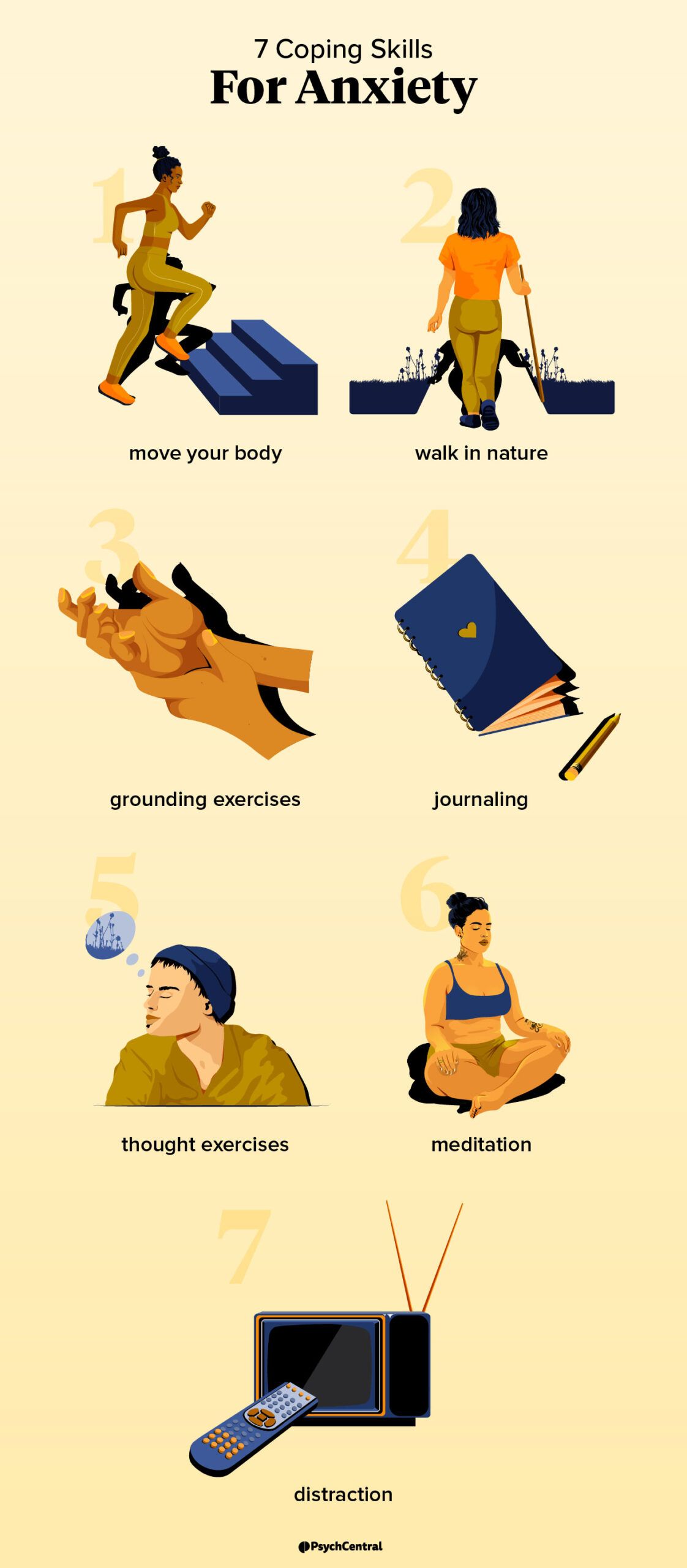Waking up in the morning should be a time of peace, not a battle with morning anxiety.
To make matters worse, it seems like the more you think about your morning anxiety, the more it affects your quality of life.
If you are having severe anxiety, seek the help of a mental health professional but if your morning anxiety is more of a constant annoyance, there are at-home strategies that can help you no matter what your daily life looks like.
Read on to figure out which tip to stop morning anxiety is the best fit for you and your lifestyle and put that morning anxiety back to bed for good.
(Note. While we earn commission from the links in this article, we only recommend the products we truly believe will improve your sleep the most. These commissions come at no extra expense to you and help us to keep providing you with expert sleep information for free.)
What Is Morning Anxiety?

According to Dr. Kelly Vincent,
” Morning anxiety’ is not a clinical term, nor is there specific research about it. Instead, it is simply experiencing anxiety upon awakening.” Morning anxiety is often a manifestation of general anxiety.”
She goes on to explain some of the common anxiety symptoms you may encounter upon waking up in the morning include:
- Feeling irritable, on edge, restless, or “keyed up”
- Racing thoughts
- Fast breathing
- Difficulty concentrating or getting your day started
- Obsessively worrying
- Tense muscles or tightness in your chest
- Pounding heartbeat
- Thoughts and feelings of dread
- Fatigue
- Mind goes blank
If this sounds like your mornings, you may be suffering from morning anxiety.
What Causes Morning Anxiety?

The cause of morning anxiety varies from person to person, but Dr. Vincent explains a list of things that, in her experience and from the Center of Anxiety Disorders, are common reasons for feelings of anxiety.
Some of the common causes of morning anxiety include:
- Anticipation of workday
- Going to bed anxious
- Too much sugar, caffeine, or alcohol intake
- Too much screen time at night or upon awakening
- Low blood sugar levels
- Struggle with time management
- Spiral of negative or anxious thinking
- Perfectionism
- Anticipation of a big day
- General fear of what may happen that day
- Nightmares
- Lack of morning routine
- Cortisol peaking

The stress hormone cortisol peaks in the morning. If you have problems with your cortisol awakening response, the change in cortisol levels one hour after awakening from sleep, you may experience higher stress or anxiety levels as well as disruptions in your sleep-wake cycle.
8 Top Tips for Coping With Morning Anxiety
Whatever the reason you are experiencing morning anxiety may be, these great self-care tips will help get your anxiety levels and anxiety symptoms under control.
Try some of these out today, but remember that you should seek the help of a mental health professional if you feel excessive anxiety.
1. Create a morning routine

Maybe you wake up in the morning with no set routine. It’s different every day which causes instability and uncertainty. That could be contributing to your level of anxiety.
The lack of a morning routine can also make it more difficult for you to really wake up. This results in difficulty getting your morning started.
The good news is that there are lots of healthy morning routine ideas that cost nothing and are super easy to get started with tomorrow morning.
2. Get regular exercise

It’s no secret that regular exercise is beneficial for many reasons.
For starters, regular moderate-intensity exercise is beneficial for mental health.
Yoga or yoga therapy are great options for the morning. They can help you get some physical exercise while also preparing and centering your mind for the day ahead.
Try out some morning exercise to get your heart rate up and your levels of anxiety down.
3. Start with positive affirmations

Positive affirmations are short phrases that you repeat to yourself to focus your mind on an intention.
There are lots of morning affirmations that you can say to yourself to get your day off on the right foot.
Here are some to try:
- I will make today a good day.
- I am grateful for the people in my life.
- I choose to be happy today.
- I am powerful and I can achieve my goals.
- Just by being me, I bring happiness to those around me.
- I deserve to have a wonderful day.
- My goals and dreams are just as good as others’ goals and dreams.
- My needs are important too.
Repeat one of these short sentences to yourself, ideally while looking at yourself in the mirror.
Studies show that morning affirmations can make you feel less powerless. They can also help you to decrease the negative emotions that you feel toward your body.
Want some more ideas? Check out this fantastic bedside book: Morning Affirmations: 200 Phrases for an Intentional and Openhearted Start to Your Day.
4. Wake up at the same time of day every day
You’ve got a busy life and lots of demands on your time that cause you to sleep and wake up at different times every day. But this lack of routine could be a contributing factor to your morning anxiety.
Sleep specialist, Dr. Shelby Harris explains,
“We are meant to go to bed at the same time and wake up at the same time, seven days a week. We do not have a different alarm for the weekdays vs. weekends. If you are having trouble sleeping, consistency every day as much as possible is key.”
Along the same lines of developing a morning routine, try to wake up at the same time every day to help reduce morning anxiety and keep your circadian rhythm in check.
5. Try deep breathing exercises

Various kinds of deep breathing exercises can help you to relax not only before bed but in the morning.
Studies show that deep breathing exercises reduce anxiety.
The 4-7-8 breathing method is a widely popular option for people who experience everyday anxiety. The method’s founder, Dr. Andrew Weil, describes the practice as a natural tranquilizer for your nervous system.
6. Practice better sleep hygiene
You may not have heard the term ‘sleep hygiene’ before, but having good sleep hygiene can be a critical component, not only to a good night’s sleep but also to an anxiety-free morning.
Essentially, sleep hygiene refers to the practices, activities, and habits that support healthy sleep patterns.
If you’re experiencing morning anxiety there are simple ways you can improve sleep hygiene to get a better night’s sleep and wake refreshed instead of on edge and fatigued.
For example, reducing blue light (the light from your phone), aiming for 7-9 hours of sleep, creating a relaxing sleep environment, sticking to a routine, and reducing caffeine intake are all ways you can cultivate better sleep.
7. Kick the caffeine

It may seem like without that morning cup of coffee, getting out of bed is impossible. But in fact, that coffee could be your saboteur and actually be responsible for making your anxiety worse.
Studies show that caffeine stops blood from flowing to the brain, which can cause undue stress, exactly the opposite of what you want to be feeling.
If you’re feeling anxious in the morning, it may be time to put down that mug and try one of the many morning coffee alternatives.
8. Consider behavioral therapy
If you have tried these self-care strategies but you’re still suffering from morning anxiety, you may have a generalized anxiety disorder, another form of anxiety disorder, or something more serious like bipolar disorder.
Mental health practitioners provide people with anxiety with the proper diagnosis. They can also give you more strategies for anxiety reduction with personalized behavioral therapy or other treatment options.
Dr. Harris specializes in Cognitive Behavioral Therapy and as it relates to sleep, she says,
“I teach patients how to meditate during the day or even an hour before bed, to help them become more aware of their anxious thoughts and let them pass so that when they get in bed they don’t get stuck on the anxious thoughts as much – they can let them pass to let sleep then happen. That’s the cognitive aspect.”
Getting quality sleep is important for reducing morning anxiety and behavioral therapy can help.
To Sum Up…
Morning anxiety doesn’t have to continue to derail your day.
By employing some at-home strategies or seeking the help of a mental health professional, you can effectively reduce or rid yourself of morning symptoms of anxiety. Exercise, morning affirmations, routines, breathing exercises, and improvement of sleep hygiene are all things you can take action on NOW.
And remember, kicking the caffeine can seriously help lower anxiety levels. If you’re looking for a healthy coffee substitute to boost your energy in the mornings, try NuJo Prebiotic Superfood Root Brew.

Welcome to Snoozerville! I’m Dr. Alex Hartley, your guide to the world of restful sleep. With a Ph.D. in Sleep Science and years of experience as a sleep therapist, I’ve dedicated my life to understanding and improving sleep quality. My passion lies in uncovering the mysteries of sleep and sharing practical, science-backed advice to help you achieve the best rest possible. Beyond my academic pursuits, I’m an advocate for mindfulness and relaxation techniques, which I incorporate into my daily routine. At Snoozerville, I aim to transform your nights, combining the latest research with easy-to-implement tips. Whether you’re a chronic insomniac or just looking to improve your sleep hygiene, join me on this journey towards peaceful, rejuvenating sleep.

